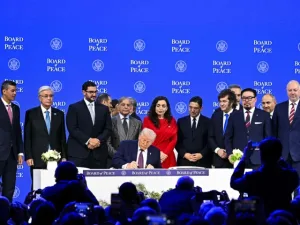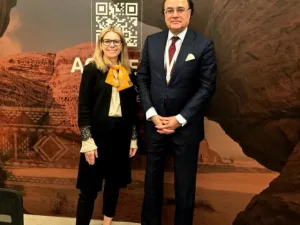ES Mag
Pakistani-origin MP Shabana Mahmood was made the United Kingdom’s interior minister in a cabinet reshuffle on Friday after Deputy Prime Minister Angela Rayner resigned saying she deeply regretted her mistake of underpaying property tax on a new home.
British Prime Minister Keir Starmer also brought in new deputy and foreign ministers in a sweeping reshuffle intended to restore his authority after Rayner’s resignation.
Starmer moved foreign minister David Lammy to become deputy prime minister and replaced him with interior minister Yvette Cooper. She was, in turn, replaced by justice secretary Mahmood. All are loyal, trusted hands.
After reshaping his Downing Street team last week to bolster his economic advice, a ministerial reshuffle had been expected. Rayner’s departure meant it was much deeper than widely predicted, forcing Starmer to draw a line under more than a week of distracting speculation over her tax affairs.
Starmer could do little to protect Rayner after Britain’s independent adviser ruled that she had breached the ministerial code by failing to pay the correct tax.“Angela is a ‘big beast’ and hard to replace,” said one Labour lawmaker, adding that the three new appointments were “sound” if not overly exciting.Mahmood, 44, is seen as a “safe pair of hands” in Labour, a no-nonsense politician who has not been scared to take bold action while running the justice system.
While Lammy has been given the position of deputy prime minister, he has also been forced to hand over the much sought-after role of foreign secretary and replace Mahmood at justice.
Cooper is one of Labour’s most senior figures after serving former prime minister Gordon Brown. Her appointment will be seen as a promotion of sorts after overseeing the government’s often criticised policy to tackle illegal migration.
Loyalty is seen as vital by Starmer, who has suffered the most ministerial resignations — outside government reshuffles — of any prime minister early in their tenure in almost 50 years.“There is a sense at the moment that they don’t know what they are doing and what they stand for,” Chris Hopkins, political research director at polling firm Savanta, told Reuters.






